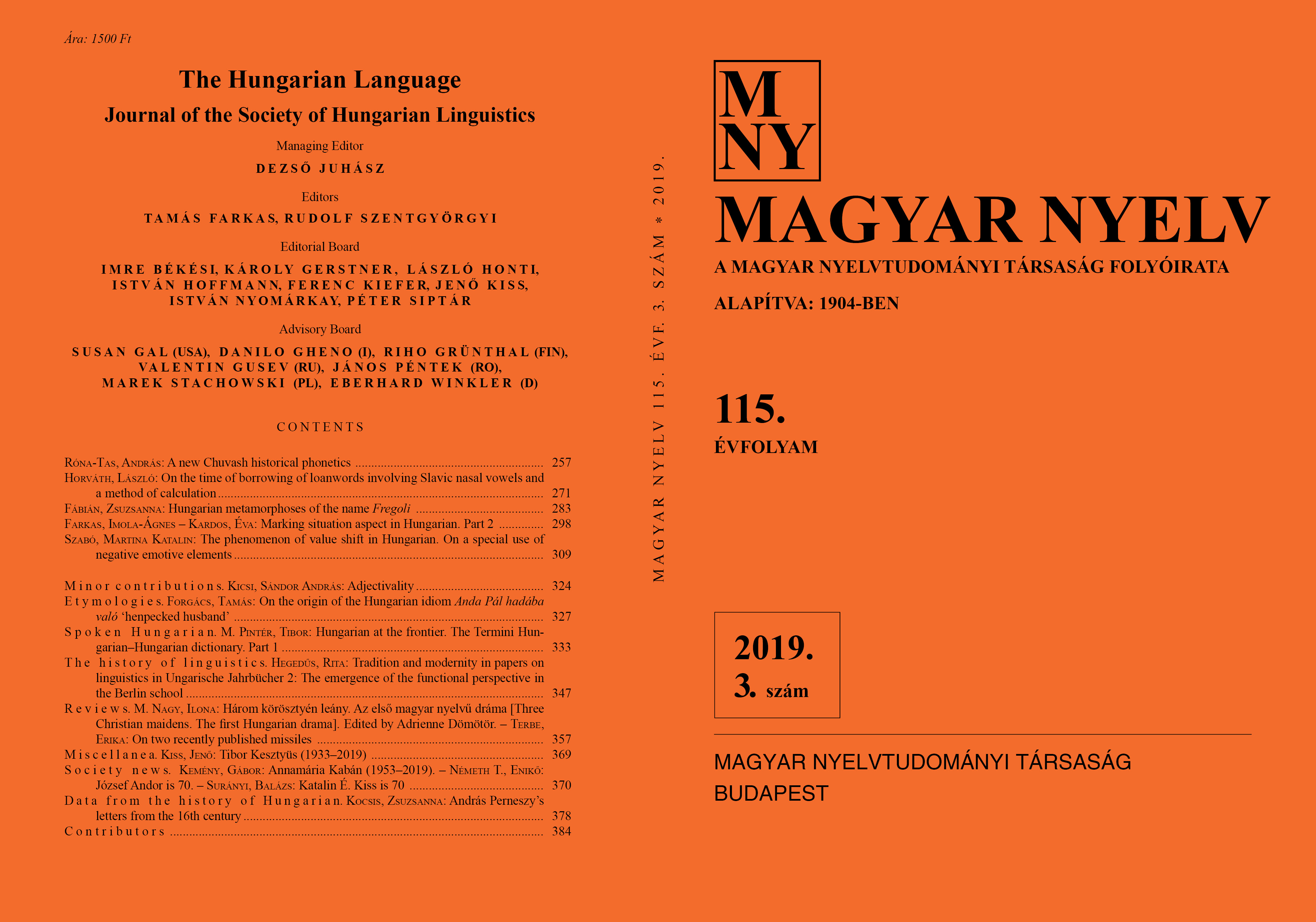The phenomenon of value shift in Hungarian
On a special use of negative emotive elements
DOI:
https://doi.org/10.18349/MagyarNyelv.2019.3.309Keywords:
evaluative content, value shift, negative emotive elements, enantiosemy, pragmaticsAbstract
This paper discusses a special use of what are known as negative emotive elements, the phenomenon of value shift. Negative emotive elements that, in themselves, out of context, exhibit a semantic content that can be taken to correspond to some negative emotion, are able to undergo value loss or, less frequently, value shift. By the former term, I mean the phenomenon where a negative element becomes an intensifying modifier for some other word as in brutálisan gyors ‘brutally fast’. By the latter term, I mean cases in which the element, in spite of its inherently negative content, expresses the speaker’s surprise or positive value judgement as in brutális alaplap ‘a brutal [= extremely/surprisingly good] mainboard’. Negative emotive elements can be found in a number of languages, and can also be attested historically. Nevertheless, disregarding my own earlier studies, very few papers discuss them; and even the ones that do, concentrate on, or even restrict their attention to, the phenomenon of value loss. The aim of the present paper is to fill that gap by contributing some observations concerning the study of value shift in negative emotive elements.
Downloads
Published
Issue
Section
License
Copyright (c) 2024 Martina Katalin Szabó

This work is licensed under a Creative Commons Attribution-NonCommercial-NoDerivatives 4.0 International License.
Magyar Nyelv is a Diamond Open Access periodical. Documents can be freely downloaded and duplicated in an electronic format, and can be used unchanged and with due reference to the original source. Such use must not serve commercial purposes. In the case of any form of dissemination and use, Hungarian Copyright Act LXXVI/1999 and related laws are to be observed. The electronic version of the journal is subject to the regulations of CC BY-NC-ND (Creative Commons – Attribution-NonCommercial-NoDerivatives).
The journal permits its authors, at no cost and without any temporal limitation, to make pre-print copies of their manuscripts publicly available via email or in their own homepage or that of their institution, or in either closed or free-for-all repositories of their institutions/universities, or other non-profit websites, in the form accepted by the journal editor for publication and even containing amendments on the basis of reviewers’ comments. When the authors publicize their papers in this manner, they have to warn their readers that the manuscript at hand is not the final published version of the work. Once the paper has been published in a printed or online form, the authors are allowed (and advised) to use that (post-print) version for the above purposes. In that case, they have to indicate the exact location and other data of the journal publication. The authors retain the copyright of their papers; however, in the case of an occasional secondary publication, the bibliographical data of the first publication have to be included.



